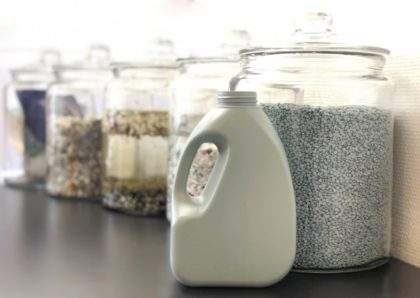Danish project to strengthen recycling of plastic waste
New Danish project will strengthen the recycling of household plastic waste
Chesterfield, UK – July 2021 – Schela Plast, recently acquired by Robinson – the manufacturer specialising in value-added custom packaging – is working on a new project to improve recycling technology to pave the way for more plastic waste to be recycled for the same use, retaining its value, rather than being downcycled.
The company is working with the Danish Technological Institute. Project Manager, Sofie Kastbjerg, says:
“Although in Denmark we are good at collecting plastic packaging from households, only a small part of the plastic is turned back into products of the same quality. The Et MUDP project, supported by the Danish Environmental Protection Agency, must now pave the way for more plastic recycling to be made circular.
Too much plastic waste is downcycled into products of lower quality than the original, and this will not work if we are to achieve the ambition of a circular economy for household plastic. Therefore, we must become good at maintaining the original quality of the plastic when it is reprocessed for subsequent recycling.”
In the project, the Danish Technological Institute has assembled a consortium with Aage Vestergaard Larsen A/S, Schela Plast A/S – now part of the Robinson group, and Nopa Nordic A/S – the three important sections in the plastic supply chain: waste collection, the packaging manufacturer and packaging end-user.
High demand for recycled plastics
Household plastics are a very mixed waste fraction with products that have very different quality standards and content that may have penetrated the plastic, for example, perfumes from fabric softener. This makes it difficult to recycle the plastic into certain packaging for example for hypoallergenic detergent and cosmetic products. In this project, the partners want to optimise the current reprocessing technology so that it becomes possible to reduce the number of undesirable substances in the waste stream. This will pave the way for an up-cycling of the mixed plastic to create new applications, for example from project participant Nopa Nordic, who require recycled packaging for their cleaning and care products.
Nikolai Haulrik, Development Manager at Nopa Nordic A/S, says:
“We place great emphasis on the sustainability of our products and recycled packaging is a cornerstone of this. In order to continue to deliver on this, we need a new source of recycled plastics which is safe to use for cosmetic and cleaning products. We see great opportunities in this project.”
The project focuses on defining requirements for the quality and purity of plastic materials so that they are safe to use for different purposes. This is a pre-requisite to re-use the plastic precisely for plastic packaging for cosmetic products and cleaning products.
Improved reprocessing technology to increase plastic quality
During the project, Aage Vestergaard Larsen’s new reprocessing technology is being developed to clean up and melt household collected plastics of PE into high-quality plastics that meet product-specific requirements.
Franz Cuculiza, CEO at Aage Vestergaard Larsen, says:
“It is a prerequisite that we maintain a clean stream of high quality materials if we are to ensure that the plastic is recycled again and again.. With the further development of our new reprocessing line for household collected plastics, we expect we can deliver materials from household collected plastic that are even higher quality than before.”
Using the reprocessed plastic, new packaging from Schela Plast will be produced for Nopa Nordic products. Morten Jeppesen, CEO of Schela Plast, says:
“Schela Plast already has extensive experience in producing materials from household plastics. We expect that 35% of our packaging this year and 50% next year will be made from recycled plastic. Today, unfortunately, it is necessary to import recycled plastic. We, therefore, look forward to a circular and sustainable supply opportunity locally in Denmark.”
The project runs until 2023 and is supported by the Danish Environmental Protection Agency’s Environmental Technology Development and Demonstration Programme (MUDP).
Facts about household-owned plastic
- Every year, Danish households throw out more than 125,000 tonnes of plastic
- A small proportion – about 21% – end up as reprocessed plastics for recycling
- The EU recycling target of 55% of plastic packaging waste corresponds to a CO2 saving of 140,000 tonnes.

